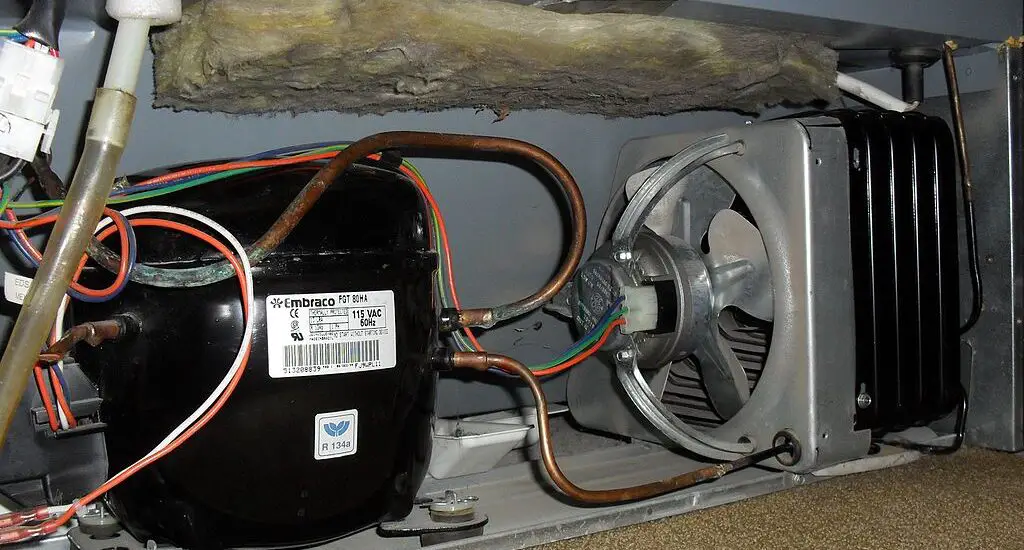What causes refrigerant leaks? A common question for those who rely on air conditioning and refrigeration systems. In this article, we’ll answer that question, exploring common causes, and how you can prevent them.

Table of Contents
What Causes Refrigerant Leaks?
So, if refrigerant is so important, what leads it to leak? Here are some usual suspects:
Wear and Tear
Much like most things in life, cooling systems can degrade with time and regular use. This degradation process, also referred to as wear and tear, can lead to the development of tiny cracks and holes in the system’s components, especially in the coils and joints that contain the refrigerant.
These imperfections can act as channels through which the refrigerant can escape from the system, thereby causing a leak.
Poor Installation and Manufacturing Defects
Just as wearing a shoe that’s not your size can cause discomfort and problems, an improperly installed cooling system or one that comes with manufacturing defects can lead to refrigerant leaks.
If the installation is subpar, it may result in inadequate seals or loose connections that provide an easy escape route for the refrigerant. Similarly, manufacturing defects like faulty valves or improperly brazed joints can also result in leaks.
Corrosion
The cooling system parts are mostly made of metal, and like all metal things, they are susceptible to corrosion. The metal components can react with air and moisture over time, leading to corrosion, which weakens the material and can cause holes through which refrigerant may leak. This problem is more prevalent in areas with high humidity or salt in the air.
Physical Damage
Cooling systems are not impervious to physical damage. Accidents can happen, whether they’re due to human error, harsh weather conditions, or other factors. These can cause immediate, noticeable damage to the system, such as broken pipes or punctured coils, leading to immediate refrigerant leaks.
It’s advisable to install the system in a safe, protected location and shield it from potential harm to prevent such instances.
Recognizing the Signs of a Refrigerant Leak
Refrigerant leaks might be invisible to the naked eye, but they often leave tell-tale signs:
Decreased Cooling Efficiency
If your home feels like a sauna in summer despite your AC working overtime, a refrigerant leak could be the culprit. Leaks deprive the system of the refrigerant it needs to cool effectively.
Hissing or Bubbling Noise
What’s that noise? No, it’s not the ghost in the attic. Unusual hissing or bubbling noises could be your refrigerant whispering that it’s leaking.
Increased Energy Bills
If your energy bills start climbing faster than a mountain goat, a refrigerant leak might be to blame. Your system has to work harder and use more energy to achieve the same cooling.
Check out these other related articles…
Refrigerant Viscosity: A Detailed Analysis
HFC134a Refrigerant: Your Ultimate Guide
Refrigerant Waste Transfer Note: An Essential Guide
XP40 Refrigerant: Your Comprehensive Guide
R448A Refrigerant: An Essential Guide
Prevention and Solutions for Refrigerant Leaks
Preventing and addressing refrigerant leaks—it’s like a game of chess. You need to think several moves ahead:
Regular Maintenance
Regular maintenance is your knight in shining armor here. It can help catch and fix potential leaks before they become a problem.
Professional Installation and Repairs
Don’t underestimate the power of professional installation and repairs. It’s the difference between a well-tailored suit and one that’s off the rack—it just fits better.
Early Leak Detection
Finally, early leak detection is key. It’s like smelling smoke before seeing the fire—it can help you act quickly and prevent more serious damage.